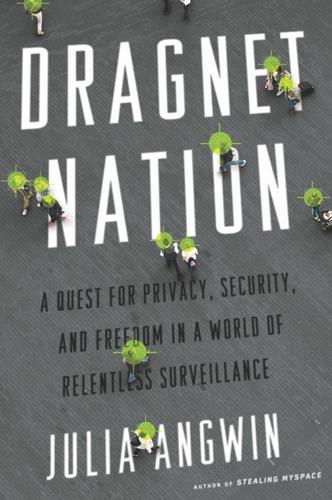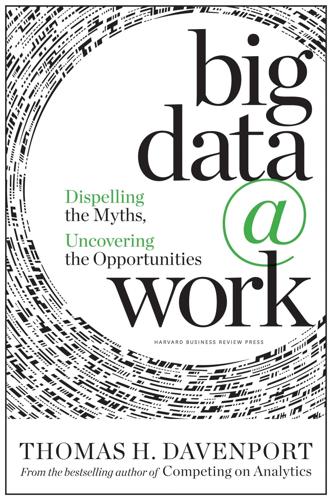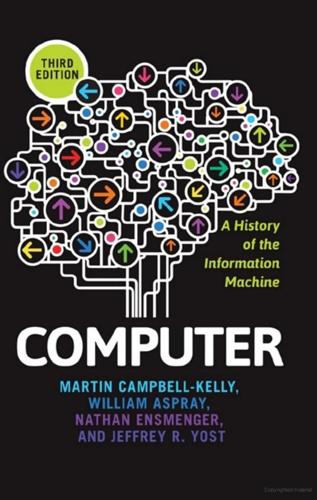Passenger Name Record
description: record used for exchanging information about passengers in travel
8 results

Delete: The Virtue of Forgetting in the Digital Age
by
Viktor Mayer-Schönberger
Published 1 Jan 2009
In March 2007, Google had first shortened the retention period to eighteen to twenty-four months, and in September 2008 it more than halved the retention time to nine months; see Helft, “Google Tightens Data Retention Policy–Again,” The New York Times. 15. ComScore Media Advisory, “Baidu Ranked Third Largest Worldwide Search Property by comScore in December 2007.” 16. See Microsoft, “Privacy Principles for Live Search and Online Ad Targeting.” 17. See Hasbrouck, “What’s in a Passenger Name Record (PNR)?” 18. See Solove, The Digital Person, 20; for an earlier account, see Garfinkel, Database Nation. 19. Solove, The Digital Person, 21. 20. See Lazer and Mayer-Schönberger, “Statutory Frameworks for Regulating Information Flows,” 368, 371. 21. Zick, “Clouds, Cameras, and Computers,” 15. 22.
…
By 2007, DHS and the European Union had concluded a slightly less invasive arrangement that required the transfer of nineteen information fields per passenger (including name, all available contact information, payment information, travel itinerary, name of the travel agency that booked the flight, and baggage information). See Agreement between the European Union and the United States of America on the processing and transfer of Passenger Name Record (PNR) data by air carriers to the United States Department of Homeland Security (DHS) (2007 PNR Agreement), OJL 204, 4.8.2007, 18 (available at http://eur-lex.europa.eu/LexUriServ/LexUriServ.do?uri=OJ:L:2007:204:0018:0025:EN:PDF); see also the Electronic Privacy Information Center’s excellent air travel privacy page at http://epic.org/privacy/airtravel/.
…
The New York Times (Jan. 29, 2008). http://bits.blogs.nytimes.com/2008/01/29/sellers-give-negative-feedback-on-ebay-changes/?ref=technology. HarrisInteractive, The Harris Poll #40. http://www.harrisinteractive.com. Harris, Robert. Selling Hitler. New York: Pantheon, 1986. Hasbrouck, Edward. “What’s in a Passenger Name Record (PNR)?” The Practical Nomad. http://hasbrouck.org/articles/PNR.html. Helft, Miguel. “Google Adds a Safeguard on Privacy for Searchers.” The New York Times (March 15, 2007). http://www.nytimes.com/2007/03/15/technology/15googles.html?_r=1&oref=slogin. ———. “Google Tightens Data Retention Policy: Again.”

Dragnet Nation: A Quest for Privacy, Security, and Freedom in a World of Relentless Surveillance
by
Julia Angwin
Published 25 Feb 2014
There was only one “VEH” vehicle crossing—when I crossed into Canada at Niagara Falls in 2003. A much more robust view of my travel was contained in a second set of documents—thirty-one pages of detailed international travel reservation information from a database called PNR, which stands for Passenger Name Records. PNRs didn’t used to be in government hands. They are commercial records held by the airlines. But after the 9/11 terrorist attacks, Congress hastily passed the Aviation and Transportation Security Act, which required the airlines to provide their commercial reservation data to the Customs agency “upon request.”
…
The first eight pages: Edward Hasbrouck, in discussion with author, May 2, 2013. But after the 9/11 terrorist attacks: Aviation and Transportation Security Act, H.R. 107-71 (2001), http://www.gpo.gov/fdsys/pkg/PLAW-107publ71/html/PLAW-107publ71.htm. In typical fashion, “upon request”: 19 C.F.R. 122.49d—Passenger Name Record (PNR) Information, http://www.law.cornell.edu/cfr/text/19/122.49d. Now, airlines routinely contribute: U.S. Department of Homeland Security, Privacy Impact Assessment for the Automated Targeting System, June 1, 2012, http://www.dhs.gov/xlibrary/assets/privacy/privacy_pia_cbp_ats006b.pdf. After a protracted legal: “EU Court Annuls Data Deal with US,” BBC News, May 30, 2006, http://news.bbc.co.uk/2/hi/europe/5028918.stm.
…
passports password-management software “Password Memorability and Security” (IEEE) PasswordResearch.com passwords children and creating strong mud-puddle test two-factor authentication PatientsLikeMe.com Patriot Act pay-for-performance principle Pearl Harbor attacks Peck, Amory PeopleSmart.com Perkins Coie law firm Permissus Perry, Edward Perry, Mike PersonicX database Petraeus, David Phoenix Suns basketball team phone calls. See also cell phones international records phone number photos Picasa PNR (Passenger Name Records) Poland police political campaigns political websites Pollan, Michael pornography Postbox Precision Market Insights Prendergast, John prepaid debit cards Pretty Good Privacy (PGP) price manipulation PRISM program privacy. See also dragnets changing conversation about children and Cypherpunks and data audit for economics of environmental pollution and first steps to protect loss of metadata and mud-puddle test and paying to protect public space and security vs.

From Airline Reservations to Sonic the Hedgehog: A History of the Software Industry
by
Martin Campbell-Kelly
Published 15 Jan 2003
At that time, the biggest problem facing American Airlines and its competitors was passenger reservations. Reservation operations were being run much as they had been in the 1930s, despite a big increase in the number of passengers. The reservation operation involved two main activities: maintaining an inventory of seats for flights and maintaining “passenger name records.” Passenger name records included the personal details of passengers—contact details, itinerary, dietary requirements, and so on. Maintaining the seat inventory in real time was the most critical problem. An airline seat was the most perishable of products; once the plane had left the runway, it had no value.
…
One man sitting in the back of the room is using field glasses to examine a change that has just been made on the display board. Clerks and messengers carrying cards and sheets of paper hurry from files to automatic machines. The chatter of teletype and sound of card sorting equipment fills the air. As the departure date for a flight nears, inventory control reconciles the seat inventory with the card file of passenger name records. Unconfirmed passengers are contacted before a final passenger list is sent to the departure gate at the airport. Immediately prior to take off, no-shows are removed from the inventory file and a message sent to downline stations canceling their space.40 Of all the carriers, American Airlines had the most innovative reservation operations.

Big Data at Work: Dispelling the Myths, Uncovering the Opportunities
by
Thomas H. Davenport
Published 4 Feb 2014
Amadeus executives argue—with facts on their side—that they were into big data before big data was big. The company’s data center in Erding, Germany, manages more than 370 million travel transactions a day and processes about 2.5 million bookings a day. At any given time, there are about 56 million passenger name records active within its system.10 As travel becomes both more democratized and more complex, customers need increasing amounts of help in navigating through the options. So a major focus of Amadeus’s big data efforts involves easing the search process and presenting customers with targeted travel options—in Figure 3-1 Objectives and stages for big data Discovery Production Cost savings Faster decisions Better decisions Product/service innovation Chapter_03.indd 75 03/12/13 11:28 AM 76 big data @ work other words, product/service innovation.

The End of Power: From Boardrooms to Battlefields and Churches to States, Why Being in Charge Isn’t What It Used to Be
by
Moises Naim
Published 5 Mar 2013
This is how dominant nations actually behave,” she wryly noted.4 What many of these cables also show is a hegemon struggling to get things done, stymied by other countries’ bureaucracies, politicians, non governmental organizations, and ordinary citizens. Dip into the cables for any one particular month and you would see: •The United States wringing its hands as the European Parliament prepares to vote down separate measures on tracking terrorist financing and providing airline passenger name records •The Russian Duma squeezing US credit card companies out of payment processing unless they join a national payment card system that significantly reduces their revenues •A long-running battle to get the government of Turkmenistan to restore the landing rights of US military aircraft •Frustration over the refusal of Kazakhstan’s government to grant local tax exemptions for equipment and personnel to safeguard spent nuclear fuel—a crucial strategic effort Even those countries theoretically in thrall to the United States are hardly obedient.

Computer: A History of the Information Machine
by
Martin Campbell-Kelly
and
Nathan Ensmenger
Published 29 Jul 2013
More important than the volume of transactions, however, was the dramatic improvement in the reservations service provided by the system. In place of the simple inventory of seats sold and available as provided by the original Reservisor, there was now a constantly updated and instantly accessible passenger-name record containing information about the passenger, including telephone contacts, special meal requirements, and hotel and automobile reservations. The system quickly took over not just reservations but the airline’s total operation: flight planning, maintenance reporting, crew scheduling, fuel management, air freight, and most other aspects of its day-to-day operations.

The Rights of the People
by
David K. Shipler
Published 18 Apr 2011
On the other, it urged that records be left in private hands and not transferred in bulk to state agencies, noting that information in government possession can be spread through agency databases and evade legal restrictions that apply to evidence in criminal prosecutions. Furthermore, government agencies keep what they gather. For example, “The FBI acquired all passenger name records from all airlines for 2001—a quarter of a billion,” said David Sobel, senior legal counsel of the Electronic Frontier Foundation, who learned of this through a Freedom of Information Act request. “They still retain it. They said it’s not of any current usefulness” but could be tapped to see if someone happened to be on the same flight with someone under scrutiny.

Cities Under Siege: The New Military Urbanism
by
Stephen Graham
Published 30 Oct 2009
They were ‘already in use in the US management of Chinese immigration as early as the beginning of the 20th century’. Karine Côté-Boucher, ‘The Diffuse Border: Intelligence-Sharing, Control and Confinement along Canada’s Smart Border’, Surveillance & Society 5: 2, 2008, 142. 180 Amoore, Algorithmic War’. Among the 34 items of passenger data required under the EU-US passenger name record (PNR) or Advance passenger information system (APIS) agreement, legally challenged by the European Court of Justice in 2006, are credit card details, criminal records and in-flight meal choices. The data is extradited to the US within 15 minutes of flight departures from Europe. 181 Karine Côté-Boucher, ‘The Diffuse Border’, 157. 182 Matthew Sparke, ‘A neoliberal nexus: Economy, security and the biopolitics of citizenship on the border’, Political Geography 25: 2, 2006, 167–170. 183 Measor and Muller, ‘Securitizing the Global Norm of Identity’. 184 Ryan Singel, ‘NSA’s Lucky Break: How the US Became Switchboard to the World’, Wired, 10 October 2007. 185 Stephan Beckert, research director at Telegeography cited in Singel, ‘NSA’s Lucky Break. 186 Singel, ‘NSA’s Lucky Break. 187 ‘RESTORE’ stands for ‘Responsible Electronic Surveillance That is Overseen Reviewed and Effective’. 188 Singel, ‘NSA’s Lucky Break’. 189 See Chapter 9. 190 See Amoore and Goede, ‘Transactions after 9/11’ 173–185. 191 Ghassan Hage, Against Paranoid Nationalism: Searching for Hope in a Shrinking Society, Sydney: Pluto Press, 2003, 18. 192 John Robb, Brave New War: The Next Stage of Terrorism and the End of Globalization, New York: Wiley, 185. 193 Ibid. 194 Ibid., 186. 195 Graham and Marvin, Splintering Urbanism. 196 Nezar Alsayyad and Ananya Roy, ‘Medieval Modernity: On Citizenship and Urbanism in a Global Era’, Space and Polity, 10: 1, 2006, 1–20. 197 Ibid. 198 See, for example, Stephen Kobrin, ‘Back to the Future: Neomedievalism and the Postmodern Digital World Economy’, Journal of International Affairs 51, 1998. 199 Alsayyad and Roy, ‘Medieval Modernity’, 17. 200 Ibid. 201 Ibid., 13. 202 Ibid. 203 Ibid. 204 James Holston and Arjun Appadurai, eds., Cities and Citizenship, Durham, NC: Duke University Press, 1999, 13. 205 Robby Herbst, ‘Hinting at Ways to Work in Current Contexts; an Interview with Brian Holmes’, Journal Of Aesthetics and Protest.org. 206 Paul Edwards, in Jordan Crandall, ed., Under Fire. 2: 58. 207 Michael Shapiro, ‘Every Move you Make: Bodies, Surveillance, and Media’, Social Text 23: 2, 2005, 29. 208 Hille Koskela, ‘‘‘Cam Era’’ – the Contemporary Urban Panopticon, Surveillance and Society 1, 2003, 292–313. 209 Feldman, ‘Securocratic Wars of Public Safety’, 330–350. 210 Carlos Decena and Margaret Gray, ‘ The Border Next Door: New York Migraciones’, Social Text 88: 24, 2007, 3. 211 Murakami Wood and Coaffee, ‘Security Is Coming Home’, 503–517. 212 Cindi Katz, ‘Banal terrorism’, in Derek Gregory and Allan Pred, eds.,Violent Geographies, New York: Routledge, 349–362. 213 Francisco Klauser, ‘FIFA Land TM: Alliances Between Security Politics and Business Interests for Germany’s city network. 214 Mats Franze, ‘Urban Order and the Preventive Restructuring of Space: the Operation of Border Controls in Micro-Space’, The Sociological Review 49: 2, 2001, 202–18. 215 M.